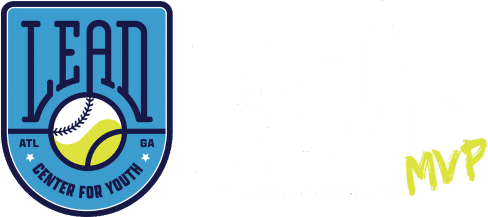Do you assess a company’s mission and value statements before doing business with them, and then reassess on an ongoing basis? We do. We have to. My wife, Kelli and I, co-founded L.E.A.D., Inc. in 2007, and this year we celebrate 10 years of empowering Atlanta’s at risk inner city youth to become leaders. How have we managed to keep going, and have great success?
We found the best way is through servant leadership. I wrote a blog post on L.E.A.D.’s Servant Leadership Role in Atlanta in March 2016. We also found that surrounding ourselves with like-minded people, and partnering with other organizations and businesses whose values align with ours, is key.
Georgia’s Own Credit Union has been a L.E.A.D. partner almost from the very beginning, and over the years has consistently shown us who they are. Through their dedication and commitment to L.E.A.D. they’ve worked to raise money at their Annual Golf Challenge to benefit L.E.A.D. In 2010, L.E.A.D. received $28,000 from the golf challenge. Yesterday Georgia’s Own CEO, Dave Preter, handed L.E.A.D. a check for $100,000 – for the fourth year in a row – from its 9th Annual Golf Challenge. We call that “hitting it out of the Park” for there is no measure of our gratitude.
David Preter the CEO of Georgia’s Own Credit Union is dedicated to the success of Georgia, especially our youth. He is passionate about fulfilling Georgia’s Own servant leadership role in Georgia, and that passion reverberates throughout the company. Our experience is that the entire Georgia’s Own staff shows commitment to serving others. When two organizations collaborate from the same mindset they set a higher tone, which was all too apparent during the recent golf challenge.
L.E.A.D. Ambassadors had the opportunity to caddy for the golfers at the tournament and interact with them on the golf course. We all know how valuable that is. Mountains get moved through conversations on the golf course. Following are the thoughts of two L.E.A.D. Ambassadors who participated this year:
L.E.A.D. Ambassador Antonio Catchings: I am a senior at North Atlanta High School, and also a L.E.A.D. Ambassador. My experience with the golf tournament this year was great. I had a chance to meet new people and play golf, I’ve never played golf before. Golf is a quite interesting sport, it’s very different from baseball. The group I was caddying for actually explained the game to me and was showing me the different shot names. It’s a game of patience and accuracy, and it’s also kind of soothing. I am just thankful for the opportunity, because not many teenagers get the chance to experience this terrific event. It helped me open up more which could help me in the future. A message to the folks at Georgia’s Own who put on the tournament: I love that you guys fed us and had a ceremony for us, for the donation. Thanks again for everything and I wish the best to all of you guys.
| Antonio Catchings receiving the ball at 2nd base |
Another amazing thing that happened was that me and my fellow Maynard Jackson scholars met our Spanish teacher’s boyfriend. What a small world!
I was an Ambassador last year when we had about 20 Ambassadors and this year we had about 35 at the tournament which was really good. We all caddied the golfers and learned a little something about golf. My dad plays golf and so did I when I was little so I already had a feel for what was going on. When we started out It was freezing cold and plus the wind was making It even worse. But as the day went on it got warmer. We all got a chance to hit a ball on the 12th hole and we also took pictures. Then after we were finished playing we went inside for the lunch and the food was delicious. Then they had the auction and then they granted us the check. We are so thankful for the 100,000 dollar check. It’s because of people like this LEAD can do what they do. We thank everyone who participated and helped this event be a success. The experience was one of a kind and we are looking forward to next year.
| Bryce Johnson |



